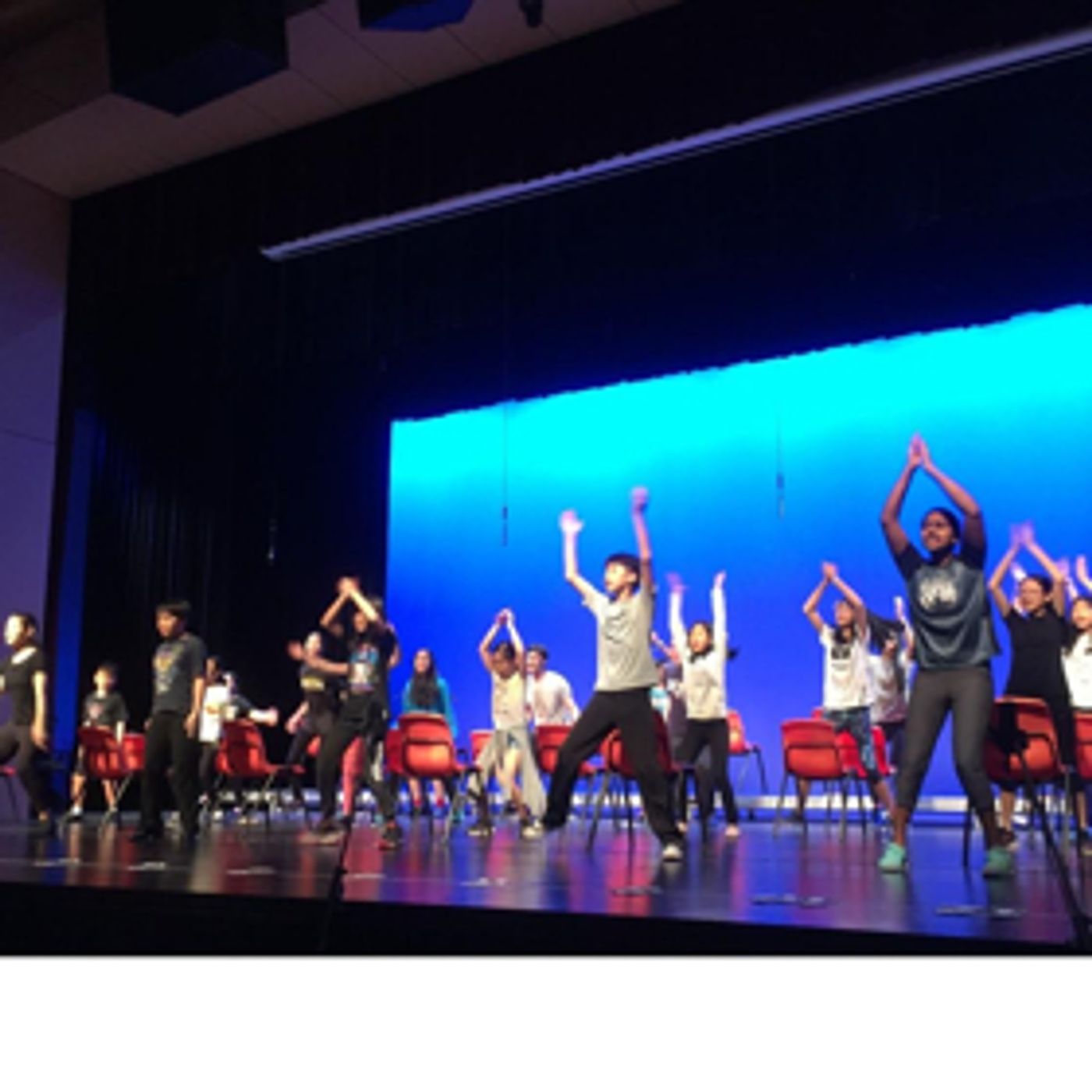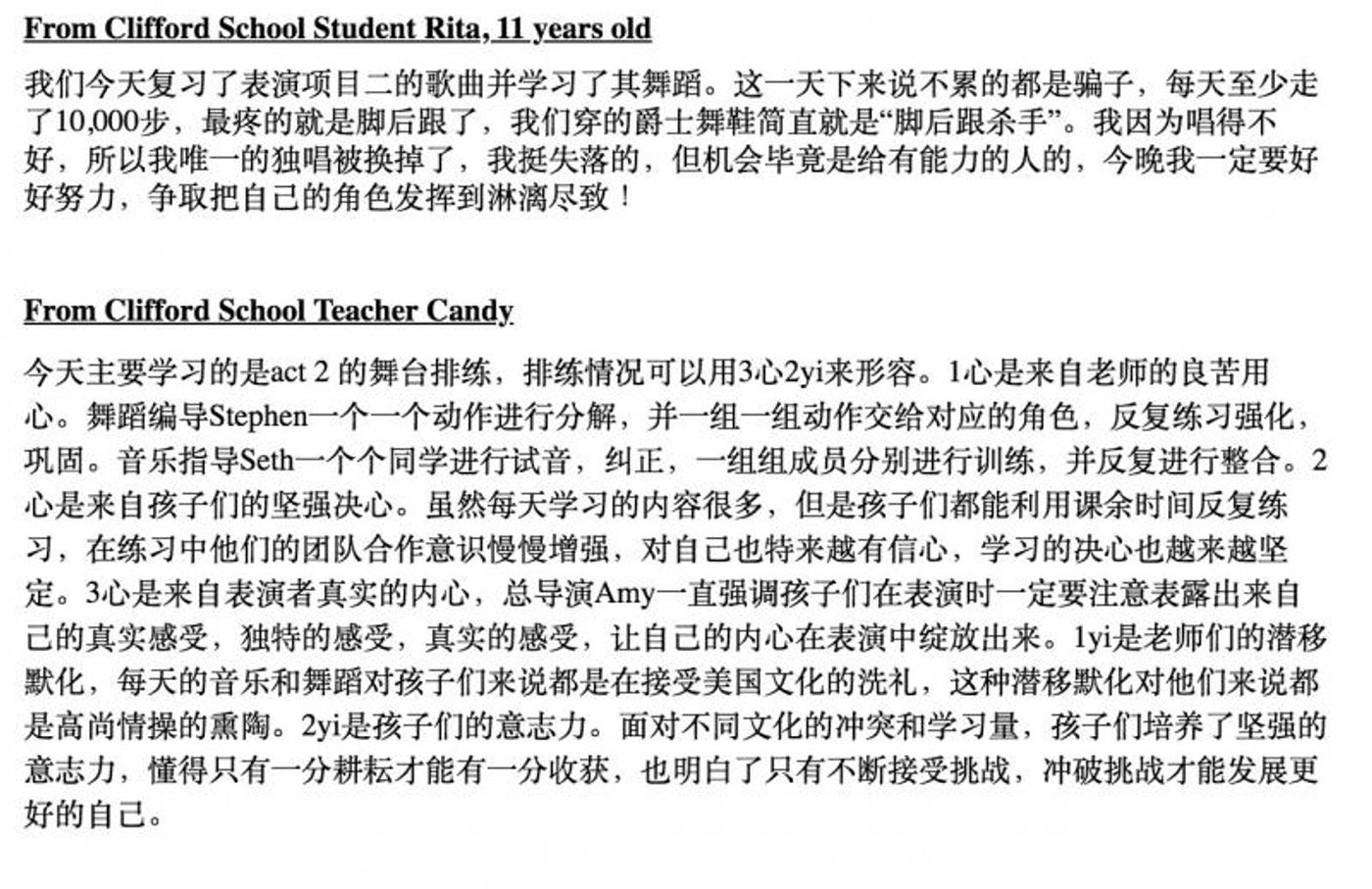Guest Blog: Passport to Broadway in China - Day #2

By far, our students' biggest challenge is to act with feeling. Pronunciation, melody, and dance steps can all be practiced to perfection, but performing while conveying a convincing attitude is difficult for someone unaccustomed to the task. Many of the students are naturally shy, and they are used to approaching schoolwork seriously.
"This is not a math problem," Amy told them. It's not about getting it correct; it's about telling a story. We replayed our dance warmup and Amy allowed them to move about as they pleased, and they started to show some passion, free from fear of making mistakes.
To get them thinking about their motives and characters, Amy gave them a short lunchtime assignment: to write out, for each song in the first half, a brief description of their individual characters' general sentiments. A third of them came up with all sorts of excuses for not doing it: "I couldn't find a pencil." "I didn't have time." "I fell asleep." They were not exempt: Instead of learning the first song in the second half after lunch, they were to complete the assignment then, and their solo lines in the song were reassigned. An appropriate penalty-significant but not too severe-for a moderate infraction.
Some other reassignments have been made, to suit those ready to take on the bigger character personalities. It simply won't work to have a bashful tour guide or a soft-spoken stage director. The kids are most at ease, Stephen noticed, when acting with members of the same sex. In a "boys versus girls" number, they rise up against each other, but when they are mixed they are uneasier, and when they are singing alone they lack confidence.
One cast member seemingly immune to fear is our youngest, seven-year-old Alice. In our first dance warmup, she was having the time of her life, mimicking Stephen almost perfectly and lighting up the room with her smile. She's on her own schedule-she lingers at meals long after everyone has left, and she appears at our sides suddenly just to say hello. She's also confidently independent: She climbs up onto the table of utensils in the cafeteria to get what she needs, she tips the pot of rice toward her in order to ladle herself a mound almost as tall as she is, and she sits at a separate table from Candy, the chaperone, who is also her mother. Alice doesn't yet understand much English, but she knows when to sing, and perhaps her lack of language ability forces her to sense our emotions rather than copy our words.
By the end of day three, the students had learned all the music for the entire show and the choreography for the first half. There's plenty to fine-tune: They need to start singing as an ensemble, with a unified sound, and they need to perform the choreography with sharper movements and without waiting to remember what comes next. And, of course, they need to tell a story while doing so. But we are pleased with the progress at the halfway point of our experience.

Love Theater in China? Join The Community!
Whether you've got past experience writing about theater or just starting, the BroadwayWorld Community offers a unique opportunity to become a champion for your local arts community, helping raise awareness of local offerings and adding another local voice to the conversation at a time arts coverage is shrinking in the press across the continent. Join us and become a pivotal part of the movement that celebrates and promotes the arts in the digital age.
Learn MoreVideos

